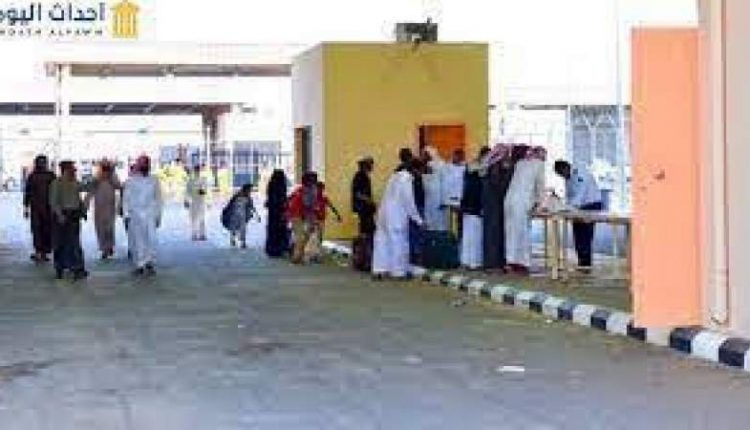HRW Calls on Saudi Arabia to Suspend Decision to Deport Yemenis, Sign Refugee Convention
Human Rights Watch (HRW) called, Tuesday, on the Saudi authorities to suspend the decision to deport Yemenis and allow them to remain in Saudi Arabia and carry out their work.
The organization said that deportation decision will force the Yemenis to return to Yemen, and compound the humanitarian crisis that Yemen has been going through since the start of the war.
Saudi media had reported that (Quwa) platform run by the Saudi Ministry of Human Resources, issued a statement about new regulations calling on companies to limit the proportion of their Yemeni workers.
Reuters previously reported that mass job cuts target an unclear number of Yemenis in Saudi Arabia.
Human Rights Watch quoted a statement by Yemeni researcher Afrah Nasser, said “The Saudi authorities are effectively laying off and threatening to forcibly return hundreds, perhaps thousands, of Yemeni professionals to the ongoing war and humanitarian crisis in Yemen.”
The report added that Saudi Arabia is contributing to the human rights and humanitarian crises in Yemen, due to the coalition’s repeated violations of the laws of war in Yemen, which exacerbated the ongoing disaster and destroyed the country’s infrastructure.
The International Federation of Yemeni Communities Abroad expressed that “Federation condemns the ongoing campaign to target Yemeni workers in southern Saudi Arabia, despite the news circulating about the existence of an exception for some Yemeni academics in some cities in southern Saudi Arabia in an attempt to absorb the public’s outcry and anger towards these arbitrary decisions.”
Human Rights Watch noted that it met with deported workers who had documents to terminate their work and refuse to renew their contracts.
All Yemeni professionals interviewed by organization said that Saudi Ministry of Labor and Social Development decided in particular to terminate or prevent the renewal of contracts for Yemeni workers, adding that Yemenis were the only ones targeted, and that other workers did not apply the same situation.
The Association of Yemeni Doctors Residing Abroad told Human Rights Watch that hundreds of Yemeni health workers in Saudi Arabia have called the association to tell it that they have been notified that their contracts will expire or will not be renewed, exposing them to deportation to Yemen.
The Yemeni workers made it clear to the organization that the termination of their contracts would severely affect their livelihood and residency in Saudi Arabia, and that losing their jobs would also prevent them from supporting their families who depend on them financially.
The UN Under-Secretary-General for Humanitarian Affairs, Martin Griffiths, said, “There has recently been a story about the potential for remittances from Saudi Arabia to be at risk, and this is of course a very important source of income for many people in Yemen and remittances must be protected.”
Remittances are an economic pillar
More than two million Yemenis live in Saudi Arabia, and their remittances are a vital pillar of the devastated Yemeni economy.The World Bank estimated in 2017 that remittances sent from Yemenis in Saudi Arabia amounted to $2.3 billion annually.
Remittances sent from Saudi Arabia accounted for 61% of total remittances sent from abroad, according to Yemen’s Ministry of Planning and International Cooperation in 2018.
The UN Under-Secretary-General for Humanitarian Affairs, Mark Lowcock, has described the remittances as the largest source of foreign exchange in the country for several years, which has provided a lifeline to millions of people.
Human Rights Watch stressed the need for Saudi Arabia to sign and ratify the 1951 Refugee Convention and the 1990 International Convention on the Protection of the Rights of All Migrant Workers and Members of Their Families, so that its laws comply with international standards.

